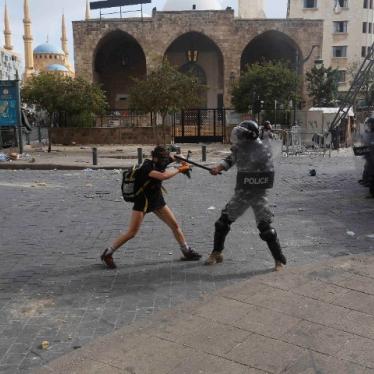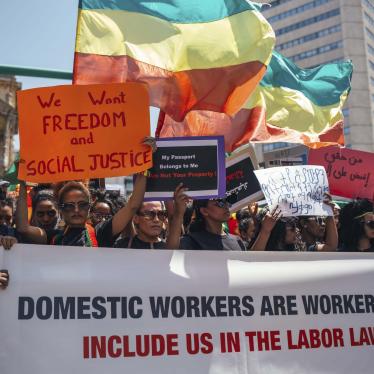Ziad Itani, a well-known Lebanese actor, will be questioned by an investigative judge today in relation to a criminal defamation complaint filed against him by two State Security officials. Itani has accused Lebanon’s State Security of forcibly disappearing and torturing him in November 2017 after he was detained on false charges of spying for Israel. He was later exonerated. The defamation complaint reportedly follows Itani’s public criticism of State Security after a video of his interrogation was leaked to the media in August 2020.
Lebanon’s latest attempt to intimidate and silence an alleged torture victim reveals three worrying indicators about freedoms in Lebanon:
- Authorities continue to rely on Lebanon’s criminal defamation laws, which authorize imprisonment up to three years, to retaliate against individuals criticizing them. Human Rights Watch has documented a significant increase in the use of these laws in recent years, particularly in the wake of 2019’s October Uprising. People interrogated described physical and psychological tactics they believe were intended to humiliate, punish, and deter them from publishing content deemed insulting to or critical of powerful people. Most of those interrogated were made to sign pledges promising not to publish defamatory content about the complainant without first appearing before a court, violating fundamental rights and freedoms.
- Impunity for torture remains rampant. Itani described to Human Rights Watch in harrowing detail his forced disappearance and torture at the hands of State Security in November 2017. He filed a torture complaint on November 20, 2018, but criminal justice authorities have yet to take any serious action to investigate his allegations or other credible reports of torture.
- Criminal justice authorities can lack the power or will to challenge powerful people. Not only have criminal justice authorities failed to investigate Itani’s torture allegations, they have also not launched a serious investigation into how Itani’s interrogation videos were leaked to the media, which constitutes several crimes. Instead, judges were quick to summon Itani for interrogation after State Security officials filed a defamation complaint against him.
There is no excuse for Lebanon’s failure to combat torture. Instead of silencing Itani, criminal justice authorities, including investigating judges, should investigate both his serious torture claims and how confidential information was leaked to the media. They should also ensure freedom of speech is protected and critics are not punished for speaking out.










